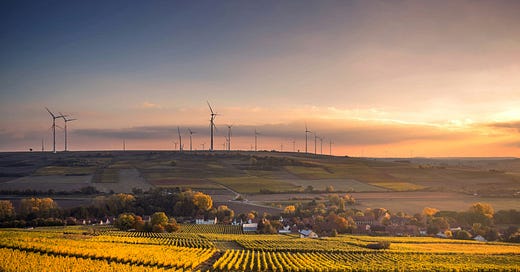The Power of Partners in Earth Systems Investing
Why sector-focused partners help Third Nature take an “earth systems” lens.
I recently had the pleasure of speaking with a cohort of exceptionally bright MIT Sloan MBA students who are studying the intersection of systems thinking, finance, and sustainability. My biggest takeaway? The future is in very good hands.
For many in the impact investing space or the environmental movement, it can be easy to feel disheartened. Every day, we’re bombarded with setbacks: a company scaling back its sustainability commitments, promising legislation failing to pass, new research declaring we’ve hit yet another climate “tipping point.” It’s easy to feel stuck, like the status quo is immovable.
But spending just a couple of hours with these future leaders shifted my perspective.
These students were nothing short of inspiring—relentlessly solution-oriented, unencumbered by the limitations of “how things have always been done,” and bold enough to think in transformative ways. It was a true pleasure to engage with them and see firsthand the potential of the next generation of business and investment leaders.
Another theme emerged during our conversation that I’ve been reflecting on. As I walked the students through Third Nature’s systemic investing approach—particularly our focus on “earth systems”—a thoughtful question came up: How do you make an impact when your lens is so broad? How do you know where to start, who to engage with, and how to prioritize? It’s a fair question, and one that gave me the chance to explain a key aspect of how we operate (and how we got there).
In systems-based investing, there’s a natural tension. Firms with a narrowly defined focus benefit from deep expertise, known as specialist funds within various investment “verticals.” The more investing they do in a specific area, the more strategic insights they gain, creating a feedback loop that sharpens their edge and investment point of view. But that same narrowness can also create blinders, leaving critical factors, systems, and dynamics outside their view or vertical—and potentially limiting their overall impact and overlooking risks that fall outside their domain of investment.
This tension is personal for us. I started my impact investing career as a food systems investor. My previous firm – Closed Loop Capital, founded in 2011 – was one of the first thematically oriented food systems investors. For more than a decade, we intently worked to improve food systems while generating financial returns by investing throughout the entire value chain, from field to fork. Though we experienced notable successes, including the record-shattering IPO of our portfolio company Beyond Meat, upon reflection it became clear that our focus on the food system exclusively had created blind spots. We were overlooking other related systems – such as water, energy, biodiversity – that were and are deeply interconnected with food systems, thereby limiting our ability to drive the true impact and transformation we sought.
We’re seeing a very similar pattern play out today with the growth in climate tech investing. More money into climate tech and innovation is a fantastic thing, but too often, investors are siloed into their own tribes—whether focused on climate tech, food and ag, nature, or oceans—and aren’t talking to one another, much less working together. So just like we did with food, this new wave of climate tech investors is trying to solve an important and complex puzzle – but they’re not seeing the whole playing field, which I fear will hinder their efforts as a result, and may generate unintended consequences.
It was these series of reflections and observations that led us at Third Nature to adopt a holistic “earth systems” perspective. We know that all natural and human systems are deeply interconnected, and seeing these connections is essential to creating meaningful change at a systems level. We realized that to be effective and successful systemic investors, we have to be able to take a step back and see the entire picture – to provide clarity of context, to then inform our investment decisions.
But to see the full picture and dive deep into various overlapping systems, you need a village. So from the start, we focused on assembling the smartest minds across sectors—leaders in food, agriculture, sustainable fashion, and more—to build a partnership network of field experts. Specifically, we are partnering with best-in-class, thematically-focused fund managers who bring deep expertise in specific systems and themes. These strategically aligned partners are what enable us to maintain both breadth and depth in our approach.
In coming weeks, to spotlight some of these exceptional fund managers, we’ll be publishing exclusive Q&As with their leaders – from Trailhead Capital’s focus on regenerative agriculture; to Alante Capital’s focus on driving sustainability within the fashion and apparel industry; to Desert Bloom Food Ventures’ focus on creating a healthier food environment.
Through these conversations, we hope to highlight the deep credentials and perspectives some of these leading thematic investors hold in their respective sectors and how their wisdom and work supports our earth systems investment framework to drive our strategy to create true systems change. Stay tuned!
#####
Be sure to follow us on LinkedIn and Substack for all the latest company updates and insights!







